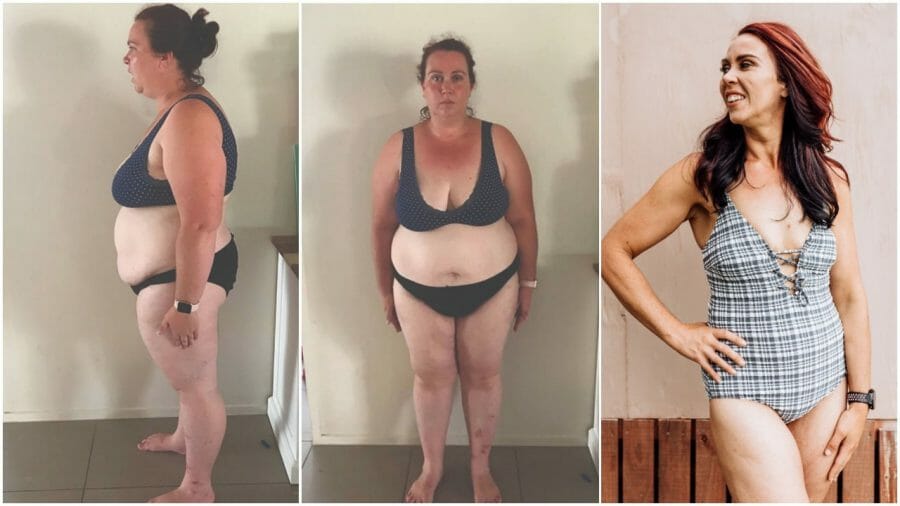
Jacqueline Brock underwent seven years of fertility therapies earlier than a 3rd spherical of IVF produced two embryos, and one wholesome being pregnant. Now, Brock and her husband fear their choices could possibly be restricted for the remaining embryo amidst a push to present rights to fetuses which are typically ascribed to an individual.
Natalie Krebs/Facet Results Public Media
conceal caption
toggle caption
Natalie Krebs/Facet Results Public Media
For seven years, Jacqueline Brock endured grueling fertility therapies – and all the emotion that got here with them.
“I needed to cease going to outings with our buddies as a result of they’d carry their youngsters or speak about their youngsters, and I’d simply cry,” she stated. “I did not go to quite a lot of child showers and issues as a result of I could not bodily deal with it.”
Final yr, Brock, who lives in West Des Moines, Iowa, together with her husband, James, underwent a 3rd spherical of in vitro fertilization, or IVF. It produced two embryos. She had one implanted. This time it labored, leading to among the finest moments of her life.
“I obtained a name from our fertility clinic, and all the nurses and our docs, they’re on the telephone. They usually all yelled out we have been pregnant,” she stated.
Brock’s daughter, Eloise, was born in January.
However her pleasure shortly turned to frustration when a month later, the Alabama Supreme Courtroom dominated that embryos created via IVF needs to be thought-about youngsters.
Brock felt for the ladies who paused their IVF cycles through the preliminary confusion within the wake of the ruling. And it made Brock involved in regards to the couple’s remaining embryo. They need a second little one.
The Alabama ruling arrived amid a wave of makes an attempt to go comparable legal guidelines in state legislatures.
Throughout the newest legislative session in 13 states (together with Iowa), lawmakers launched payments that might give among the identical rights to embryos and fetuses that typically defend an individual, in keeping with an evaluation by the Guttmacher Institute, a non-profit that helps abortion rights.
Although Alabama Gov. Kay Ivey signed a legislation granting protections to IVF a month after the courtroom ruling, the precarious authorized panorama worries sufferers like Brock and her husband.
“We have been speaking about, ‘Do we have to get a lawyer to determine what to do with our embryo, or do we have to transfer our embryo to a different state in order that it is secure?’” Brock stated.
‘I simply by no means actually, actually believed that that might occur’
None of this group of payments handed this yr, however coverage consultants count on comparable payments to return up in future legislative periods. The wave of payments are a part of a pattern within the anti-abortion motion, stated Kimya Forouzan, the principal state coverage affiliate on the Guttmacher Institute, a analysis group that helps abortion rights.
“Actually the better push has been to essentially search to limit quite a lot of several types of sexual and reproductive well being care. And one of many methods to do this is by establishing personhood within the legislation,” she stated.
For example, the Iowa Home handed a invoice that might enhance felony penalties for inflicting somebody to lose a being pregnant with out their consent and would change the time period “terminates a human being pregnant” to “causes the dying of an unborn little one.”
Danny Carroll, a lobbyist for the Household Chief, a conservative group, advised Iowa lawmakers in February that the shift in language would clearly outline life as starting at conception.
“This invoice offers with the safety of that life, and rightly so,” Carroll stated. “The time period human being pregnant is handy if you happen to’re pursuing a pro-abortion agenda, as a result of you do not have to appreciate the reality that life begins for the time being of conception, and what we’re speaking about is an unborn little one.”
Kansas legislators mentioned in committee a invoice that would offer little one assist for “unborn youngsters” from the date of conception. In Missouri, the place abortion is generally banned, the lawmakers launched a invoice that stated “unborn youngsters … are entitled to the identical rights, powers, privileges, justice, and protections” as every other individual within the state. A state senate invoice that established requirements on how courts decide custody of an embryo was additionally launched.
Indiana lawmakers launched a invoice that might enable pregnant folks to assert their fetuses as dependents on their state taxes.
Anti-abortion teams in Nebraska are at the moment pushing for a poll initiative that might ban abortions after the primary trimester and outline “a preborn individual at each stage of growth” as an individual.
On the identical time, there’s a shifting patchwork of state abortion bans in place that additional complicate and trigger confusion about reproductive decisions. In Iowa, as an example, a choice from the state Supreme Courtroom relating to whether or not or not the 2023 fetal heartbeat abortion ban ought to go into impact is anticipated in June.

Iowa Rep. Skyler Wheeler, a Republican, stated the “unborn individual” definition is already in Iowa’s state legislation and has not jeopardized IVF throughout a Home debate in February.
Grant Gerlock/Iowa Public Radio
conceal caption
toggle caption
Grant Gerlock/Iowa Public Radio
These initiatives, together with the Alabama Supreme Courtroom resolution and the disruption it precipitated the state’s IVF clinics, hassle some medical professionals who present fertility care.
“I simply by no means actually, actually believed that that might occur,” Dr. Abby Mancuso, an infertility specialist in Des Moines, Iowa, stated of the Alabama resolution.
It’s widespread apply throughout IVF to create further embryos in case of abnormalities or different points, however embryos can simply be broken, as they have been within the case central to the Alabama resolution, she stated.
When embryos are legally thought-about youngsters, that might have a detrimental influence on docs, Mancuso stated.
“For those who’re an embryologist or an establishment, and you can be held criminally liable for any injury that occurred to those microscopic cells, that is clearly a priority,” she stated.
There’s additionally the civil legal responsibility concern, which places amenities vulnerable to being sued for some huge cash and damages.
All of which means that debates over abortion and IVF protections are anticipated to play a big function within the upcoming election.
‘It is onerous to essentially write in exceptions’
Proponents of payments that outline life as starting at conception say they wish to guarantee they’re written so that they defend IVF and fertility therapies.
Following the Alabama Supreme Courtroom resolution, Gov. Kay Ivey signed a legislation shielding IVF sufferers and suppliers from authorized legal responsibility.
When Iowa Democrats introduced up considerations about how a invoice that might change “human being pregnant” to “unborn individual” might have an effect on IVF within the state throughout a Home debate in March, Republican Rep. Skyler Wheeler, who sponsored the invoice, dismissed them as irrelevant and alarmist.
“Generally you hear issues and also you see issues, and also you simply cannot wrap your head across the insanity,” he stated.
Iowa Republican Rep. Zach Dieken defended the invoice’s shift in language.
“I do imagine that my two-year-old is an individual. I imagine that my 13-month-old is an individual,” he stated. “And in November, when my spouse offers delivery to my third little one, as a result of she knowledgeable me three days in the past she’s pregnant. I do imagine that individual is an individual.”
Sarah Wilson, an legal professional who focuses on fertility and adoption practices, stated the priority over the potential influence of personhood legal guidelines is actual.
“It is onerous to essentially write in exceptions which are actually going to guard households and IVF and different fertility therapies, whereas nonetheless maintaining the place that an embryo is an individual,” she stated.
Fears of felony costs
Within the meantime, Wilson stated it’s added extra stress for her shoppers who’re already going via a tough and sophisticated course of.
“As an alternative of the hope and pleasure that I normally hear from them, they arrive to me with concern they usually’re scared,” Wilson stated. “They don’t seem to be certain if their authorized parentage can be protected, and if they’re going to have choices over their very own medical care.”
A few of Wilson’s shoppers are nervous about what the long run may maintain for states like Iowa and are speaking about pursuing fertility remedy out of state.
Jacqueline Brock and her husband are contemplating contacting an legal professional like Wilson to determine their choices for his or her remaining embryo. Docs advised Brock she seemingly can’t use the remaining embryo to hold one other being pregnant herself for medical causes. So, she and her husband are contemplating different choices, like surrogacy.
They’re contemplating transferring their embryo to a neighboring state, so it doesn’t get caught up in any authorized grey areas sooner or later.
“It is actually scary to suppose that now we have this embryo, and if we do determine to discard it, we might probably get criminally charged for doing that,” she stated. “And there aren’t quite a lot of choices for us with the embryo.”
This story comes from a collaboration between Facet Results Public Media and the Midwest Newsroom — an investigative journalism collaboration together with IPR, KCUR 89.3, Nebraska Public Media Information, St. Louis Public Radio and NPR.
























































